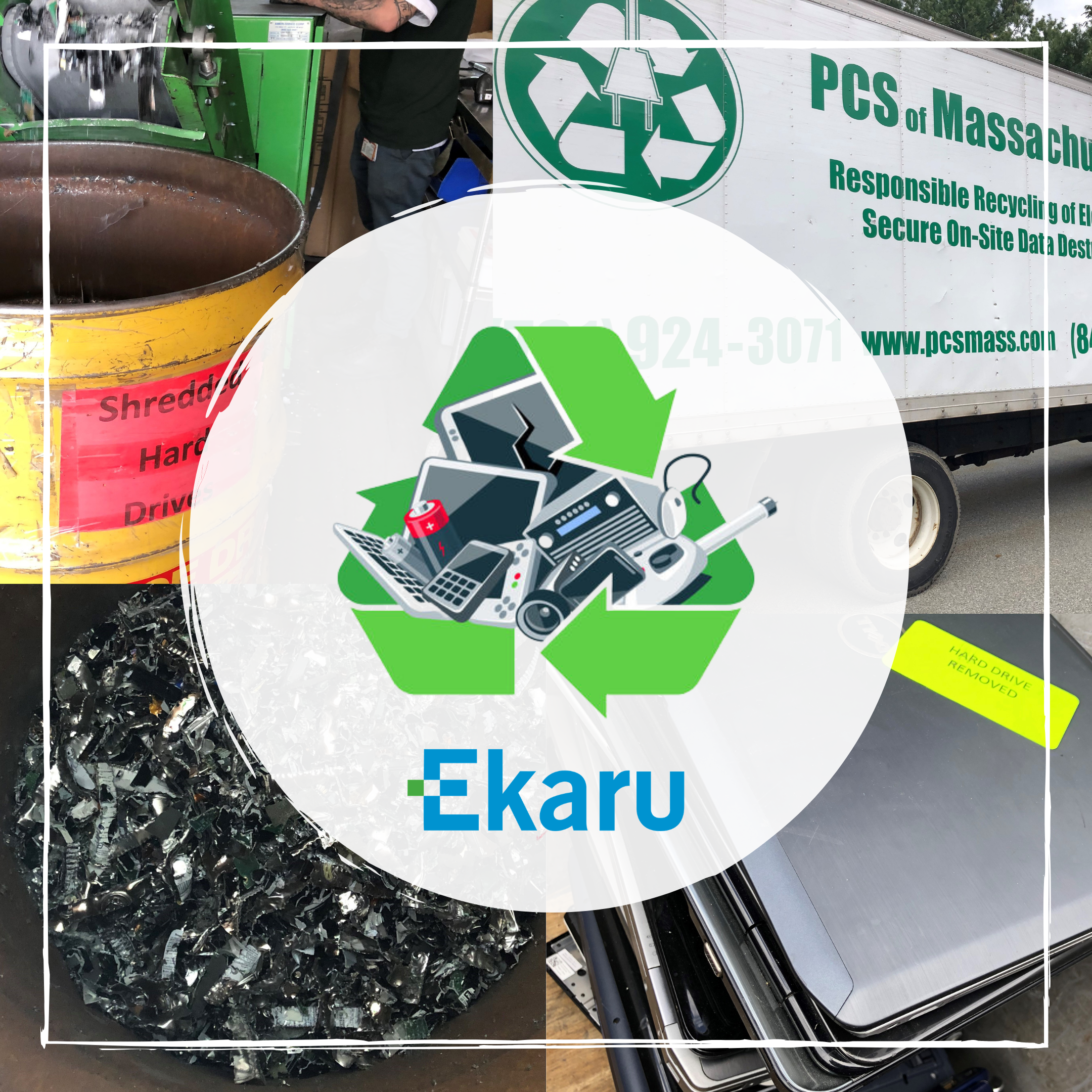 One of the harmful byproducts of the digital age is e-waste. The average person gets a new cell phone every three years and a new computer every five years. When electronics end up in landfills, toxic materials like lead, mercury, and cadmium can leak into ground water. Unfortunately, the EPA estimates that only 20% of electronics are properly recycled. Improper disposal of electronics also poses a major security risk as the data from old hard drives can fall into the wrong hands.
One of the harmful byproducts of the digital age is e-waste. The average person gets a new cell phone every three years and a new computer every five years. When electronics end up in landfills, toxic materials like lead, mercury, and cadmium can leak into ground water. Unfortunately, the EPA estimates that only 20% of electronics are properly recycled. Improper disposal of electronics also poses a major security risk as the data from old hard drives can fall into the wrong hands.
Last week, in partnership with PC Survivors of Massachusetts we hosted an Electronics Recycling and Hard Drive Shredding event for our local business community.
Whenever an Ekaru client retires an old system, we follow the following steps:
- The Hard Drive is removed from the PC
- The serial number of the hard drive is recorded
- The hard drive is locked up
- A sticker is placed on the system "hard drive removed"
- The system is staged for scheduled recycling.
Periodically we schedule electronics recycling to properly dispose of the old equipment. The systems are all double checked to confirm hard drives are removed, and asset tags are removed. The hard drives are removed from locked storage and shredded on site with specialized equipment. Each hard drive is scanned for its serial number, and that number is matched to our recorded number.
In some cases, clients with systems that don't contain protected information request that the systems are reformatted to re-purpose or donate. As a general rule, we strongly advise hard drive shredding for all protected information.
There are many benefits to electronics recycling and hard drive shredding.
- Keep harmful chemicals out of landfills
- Re-use salvaged parts and components to decrease the need for new consumption.
- Peace of Mind - if you really want to be sure your data can't be retrieved later, shredding ensures total destruction. Proper handling of protected information is an important part of any cybersecurity plan.
- Compliance - Regulations like HIPAA require the protection of sensitive information.
- DeClutter - The "paperless" office was supposed to streamline the world, but we just end up with more digital and physical clutter as time goes by - clear it out and de-stress!
What else can you do?
- Take care of your electronics and keep them longer.
- Invest in the right equipment that lasts longer.
- Repair what you can to keep equipment longer.
- When possible - re-purpose functioning equipment.
- Help educate others - no electronics in the trash!
We typically host recycling events a few times a year. Check out our website at www.ekaru.com for the next event, or contact our office to get on the invitation list.
.png)